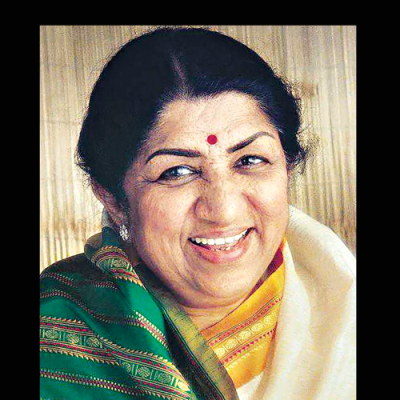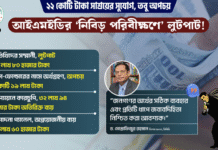
Lata Mangeshkar’s voice is immortal.
Yet if there is one song of hers that perfectly captures tributes to one of India’s most beloved and revered singers, who passed away in a Mumbai hospital yesterday after a near month-long battle with post-Covid complications, it is “Naam gum jayega” from the 1977 movie “Kinara”.
The song has the lyric “Naam gum jayega, chehara ye badal jayega/ Meri awaaz hi pehchan hai, agar yaad rahe” (My name will be lost, my face will change/ My voice is my identity, only if you can remember).
It is impossible to forget one of India’s greatest cultural icons, whose songs spoke to the emotions of millions in South Asia, regardless of age or background.
This became clearer than ever as Indian Prime Minister Narendra Modi led thousands of mourners, many of them in tears, at Mumbai’s landmark Shivaji Park where Bharat Ratna Lata Mangeshkar was cremated with full state honours. Representatives of the army, air force and navy joined others from various walks of life, including cricketer Sachin Tendulkar and Bollywood superstar Shah Rukh Khan among the celebrities, in bidding farewell to her.
At 92, Lata breathed her last in Mumbai’s Breach Candy Hospital where she was undergoing treatment since January 8 after being diagnosed with Covid and exhibiting mild symptoms. She was also diagnosed with pneumonia.
“Lata di died at 8:12am due to multi organ failure after over 28 days since her Covid-19 diagnosis,” Dr Pratit Samdani, who was treating the singer at the hospital, told reporters.
The Indian government declared a two-day national mourning during which the national flag would fly at half-mast. The Maharashtra government announced a public holiday in the state and the West Bengal government half a day’s holiday today as a mark of respect for Lata.
Lata Mangeshkar had a prodigious career spanning almost eight decades during which she sang an estimated 25,000 songs in 36 Indian languages, including Hindi, Bangla, Marathi, Tamil and Kannada, of classical and other genres.
Soon after news of Lata’s death broke, tributes poured in with President Ram Nath Kovind and PM Modi leading a heartbroken nation in remembering her.
“Lata-ji’s demise is heart-breaking for me, as it is for millions the world over. In her vast range of songs, rendering the essence and beauty of India, generations found expression of their inner-most emotions. A Bharat Ratna, Lata-ji’s accomplishments will remain incomparable,” Kovind said.
Modi said he was “anguished beyond words”.
“The kind and caring Lata Didi has left us. She leaves a void in our nation that cannot be filled. The coming generations will remember her as a stalwart of Indian culture, whose melodious voice had an unparalleled ability to mesmerise people,” he said in a tweet.
“Lata Didi’s songs brought out a variety of emotions. She closely witnessed the transitions of the Indian film world for decades. Beyond films, she was always passionate about India’s growth. She always wanted to see a strong and developed India,” he added.
Lata Mangeshkar’s cross-border appeal was evident when Bangladesh President Abdul Hamid, Prime Minister Sheikh Hasina and Pakistan’s Information and Broadcasting Minister Fawad Hussain paid rich tributes.
Considered one of the greatest playback singers in Indian cinema, Lata received several film awards and Indian government’s top civilian honours like Padma Bhushan, Padma Vibhushan, Bharat Ratna (2001), and Dada Saheb Phalke Award, Indian cinema’s highest award, and multiple national film awards.
During her career, she had earned many sobriquets — Queen of Melody, Nightingale of India and simply The Legend. Many, including some the biggest music directors and actors, equated her voice with that of Goddess Saraswati.
Among some of her most popular numbers are “Aye Mere Watan Ke Logon”, which brought tears to the eyes of the then Indian PM Jawaharlal Nehru in 1963.
Born in Indore, Lata Mangeshkar was the eldest child of Deenanath Mangeshkar, a Marathi musician and Gujarati homemaker Shevanti.
The untimely death of her father brought the financial burden of the family on her teenaged shoulders. Family friend Master Vinayak came to the aid of the family and Lata started singing and acting in his father’s theatre company.
Since music was the be-all and end-all of Lata Mangeshkar’s life, it would be apt to wrap up a tribute by recalling the 1966 Hindi film “Mamta” song “Rahen na rahen hum”, the lyrics of which loosely translate to “Whether or not I am here, I will remain as a fragrance in this garden”. Lata’s voice will continue to live long after her death.


 For all latest news, follow The Daily Star’s Google News channel.
For all latest news, follow The Daily Star’s Google News channel. 







